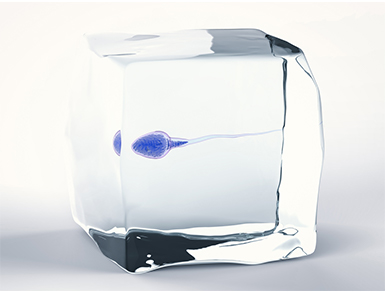Today, several women choose to have children later in their life. Hence, social egg freezing, or oocyte cryopreservation is gaining a lot of popularity among young women.

Women choose to freeze their eggs to delay childbearing. Usually, they make this decision in their late 20’s to mid-30s and perform the procedure at the Best Egg Freezing Hospital in Surat. Women choose this decision to pursue an advanced career or other personal circumstances.
Best Egg Freezing Hospital in India recommends social Egg freezing for:
Career and Educational Plans: Women who wish to pursue advanced degrees or demanding careers may freeze their eggs when they are young to ensure access to healthy eggs later on.Some companies, even fund egg-freezing at the Best Egg Freezing Hospital in Surat for female employees who wish to delay childbirth for professional reasons.
Personal Circumstances: Women who want to have a child with a partner but have not yet found one may freeze their eggs for future use. Women in same-sex relationships may also wish to have a baby further down the line.
As a woman grows older, the quality of her eggs tends to decline.
The eggs may contain more chromosomal abnormalities, and women will no longer ovulate after menopause. This means that her ovaries will cease to release eggs.
If a woman wants a child but is not able or ready to conceive at present, a dedicated facility can freeze her eggs for use at a later date.
What Are the Steps of Social Egg Freezing?
The steps involved in social egg freezing are:
Consultation: Before beginning the egg-freezing process, counselling of the patient is done and a screening blood test is advised like AMH (anti-Mullerian hormone) and viral markers (HIV, HBsAg, HCV, VDRL).
Stimulation: During a normal menstrual cycle, only one follicle is produced by the ovaries but we want to preserve as many eggs as possible. Ovaries are stimulated with injections to produce multiple eggs. These are used in conjunction with drugs like an antagonist for the proper regulation of the cycle.
Follicular study: These scans are done regularly to assess follicular development. The size of the follicles indicates the degree of egg maturity, usually 10-15 follicles will develop in the ovaries during the standard stimulation protocol.
Egg retrieval: All the instructions before the oocytes retrieval or egg pickup will be given on the day woman receives the trigger injection. The trigger injection is usually given late evening or in the night to schedule the pickup in the morning around 34-36 hrs later. Aspiration of ovarian follicles under anaesthesia is done in OT adjacent to the IVF laboratory. This is done by the transvaginal ultrasound technique. For this procedure, a probe is inserted into the vagina and this projects a picture into a monitor which enables the doctor to direct a needle into each follicle to retrieve the eggs. The fluid-filled follicles are aspirated under slight suction in a test tube which is passed on to the embryologist.
Egg freezing: The embryologist locates the eggs and places them into culture media and then into the incubator. After the procedure, the women will have to rest in the hospital for 3-4 hours. It is a daycare procedure.
